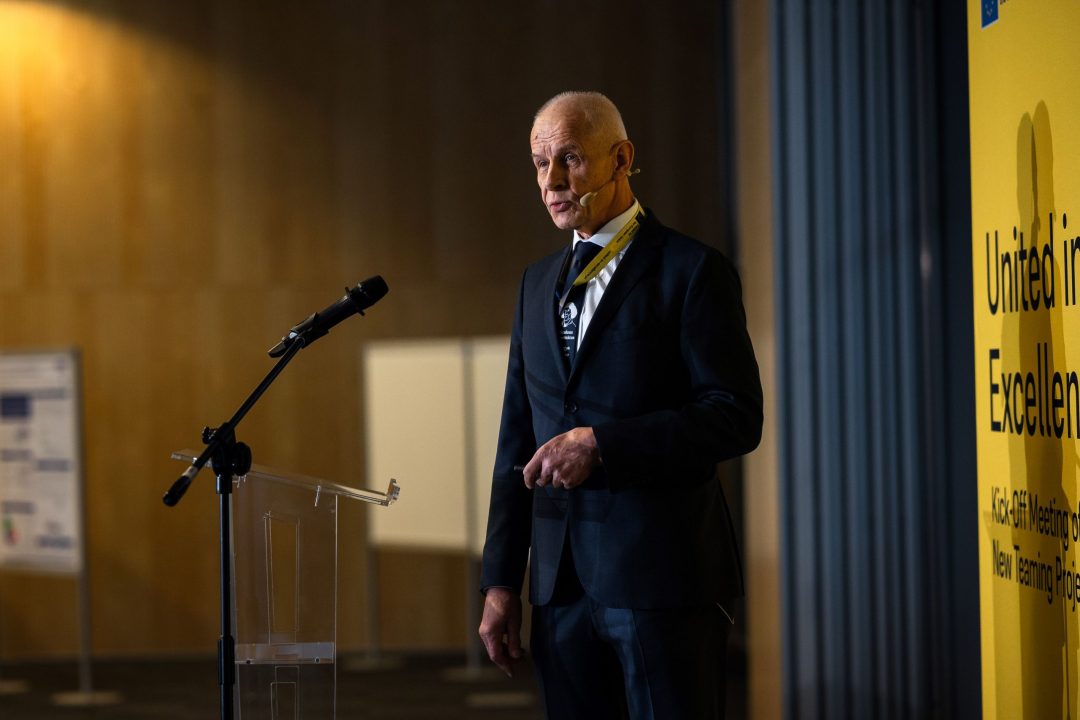News & Events
March 28, 2025
McDonald Institute broadens collaboration with AstroCeNT
AstroCeNT Plus, a leading research centre in Poland, recently announced its expanded collaboration with the McDonald Institute, which has joined as an associate partner to the Warsaw-based organization’s new consortium of European organizations, including APC (AstroParticule et Cosmologie), DESY (Deutshes Elektronen-Synchrotron), Gran Sasso Science Institute, and Łukaseiwicz Network.
An official launch event was held Feb. 19 at the Copernicus Science Centre (Centrum Nauki Kopernik) in Warsaw.
The new consortium, which expands the predecessor organization, ASTROCeNT, is funded by a €45 million Teaming for Excellence award from EU Horizons. The funding aims to strengthen research and innovation capacity across Europe by fostering international partnerships. As an associate partner of the consortium, the McDonald Institute is not a beneficiary of EU funding, but it does have opportunities to combine its efforts within consortium members to maximize the impact of its research, technology and education-and-outreach work.

AstroCent Director Leszek Roszkowski presents an overview of AstroCeNT Plus to the delegates.
“The Canadian astroparticle community’s EU partners have always been critically important to our own role within global astroparticle physics. This new consortium is a great platform for us to deepen those ties for the coming decades of new research.”
“We are excited to partner with an expanded ASTROCeNT Plus,” said Tony Noble, Scientific Director of the McDonald Institute. “The Canadian astroparticle community’s EU partners have always been critically important to our own role within global astroparticle physics. This new consortium is a great platform for us to deepen those ties for the coming decades of new research.”
AstroCeNT Plus research consortium, based at the Warsaw University of Technology, focuses on the detection of dark matter, neutrino physics, and the development of advanced detectors. The new EU Horizons funding will help AstroCeNT Plus partners leverage each others’ strengths in research, technology development, and public education and outreach. The Teaming for Excellence program supports enhanced research capabilities, sharing of expertise, and promotion of scientific excellence. ASTROCeNT Plus specifically focuses on dark matter detection, neutrino physics, and the development of advanced detectors.
For more information about AstroCeNT Plus and the Teaming for Excellence program, please visit the AstroCeNT Plus Website . Also see the recent Innovation News Network feature story detailing the expanded consortium.
